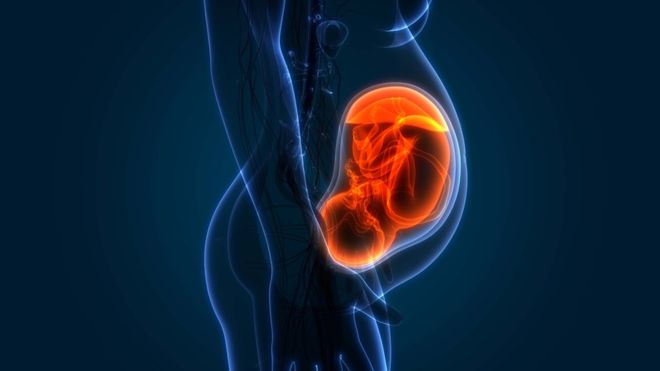Researchers have identified two biomarkers that could help in the diagnosis of a heart condition that raises the risk of stroke.
Atrial fibrillation (AF) is the most common heart rhythm disturbance, affecting around 1.6m people in the UK.
But it is often only detected after someone has had a stroke.
The British Heart Foundation said the study could pave the way towards better detection of people with AF and targeted treatment.
At the moment, an electrocardiogram (ECG) which measures the electrical activity of your heart, is usually used to screen patients for atrial fibrillation.
This study, by researchers at the University of Birmingham, found that three clinical risk factors and two biomarkers had a strong connection with AF.
Those most at risk of the condition were older, male and had a high BMI.
The researchers looked at 638 hospital patients who were recruited between 2014 and 2016 for acute illnesses.
They took blood samples and looked for 40 cardiovascular biomarkers and considered seven clinical risk factors – age, sex, hypertension, heart failure, history of stroke or transient ischaemic attack, kidney function and body mass index (BMI).
They were also all given an echocardiogram.
Two biomarkers stood out as a link to atrial fibrillation, the researchers found.
One is a hormone secreted by the heart called brain natriuretic peptide (BNP) and the other is a protein responsible for phosphate regulation called fibroblast growth factor-23 (FGF-23).
The researchers say these people could be screened for the condition by testing their blood to see if they have elevated levels of the two biomarkers.
Lead author Yanish Purmah said: “The biomarkers we have identified have the potential to be used in a blood test in community settings such as in GP practices to simplify patient selection for ECG screening.”
Joint first author Dr Winnie Chua said: “People with atrial fibrillation are much more likely to develop blood clots and suffer from strokes. To avoid strokes it is important for them to take anticoagulant drugs to prevent blood clotting. However, atrial fibrillation is often only diagnosed after a patient has suffered a stroke.
“Therefore it is important that patients at risk are screened so that they can begin taking anticoagulants to prevent potentially life-threatening complications.”




